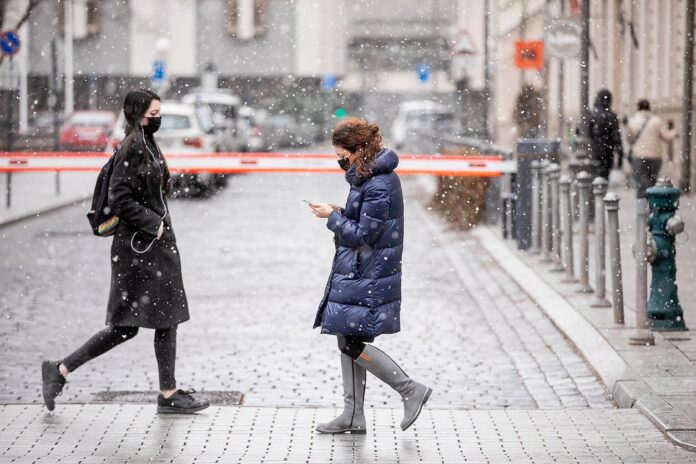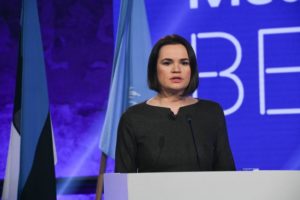
COVID-19 Update
Prime Minister Ingrida Šimonytė announced on Wednesday that there are no plans to ease the lockdown in Lithuania over the upcoming weeks. She added that the epidemiological situation in Vilnius County and the city of Marijampolė is getting worse. The government will also decide as early as this week whether any additional restrictions are necessary, she said.
Daily coronavirus case numbers have been going up in Lithuanian recently. Lithuania registered 768 new coronavirus infections and nine deaths from Covid-19 as of March 24. Lithuania’s 14-day coronavirus infection rate currently stands at 272.3 cases per 100,000 people, and the share of positive tests over the past seven days – at 7.1 percent. In all, 211,011 people have tested positive for Covid-19 in Lithuania since the pandemic started. In a worst-case scenario, the number of new infections by mid-April might reach the levels seen in December, when about 3,000 new cases were recorded each day, according to the country’s public health experts.
Vilnius Archdiocese has decided to temporarily suspend public church services until Easter Monday in the worst-affected parts of the country. Easter mass will not take place in the worst-affected areas – in Vilnius and Vilnius District, Švenčionys District and Visaginas, as well as Alionys Church in Širvintos District and Bartkuškis and Šiauliai Chapels which belong to the Vilnius Archdiocese.
QR Code for COVID
Lithuania’s Centre of Registers will create an immunity certificate, which is expected to be available by the summer. Information from the e.sveikata (e-health) system on whether a patient has been vaccinated, has recovered from the illness, or has a negative Covid-19 test will be encrypted in a QR code. A traveller will be able to print out the certificate with the QR code or download it onto their phone.

This comes as part of the European Commission’s push to create “digital green certificates” across the bloc, as introduced on March 18. The certificates will allow people who have been vaccinated or have recovered from Covid-19 to freely travel within the European Union for 180 days. However, there is no agreement yet on whether the certificates should include tests for Covid-19, according to European Commissioner for Environment, Oceans and Fisheries, Virginijus Sinkevičius.
Belarus Independence Day – in Lithuania

Belarusians in Vilnius are holding rallies and concerts to commemorate the March 25 Independence Day, according to LRT.lt. “The time has come for us to return to the streets and continue our fight against the regime that has made our country a prison,” commented Svetlana Tikhanovskaya, the opposition frontrunner against Alexander Lukashenko in the presidential election last year.
The Belarusian People’s Republic declared independence on March 25, 1918, which is considered by the present-day opposition against the regime to be the country’s independence day. Tikhanovskaya met with Lithuanian President Gitanas Nausėda on March 25. She also laid flowers at Rasos Cemetery in Vilnius to honour the leaders of the 1863 anti-Tsarist uprising that swept the present-day territories of Belarus, Poland, and Lithuania. As well, Tikhanovskaya laid flowers on the grave of Anton Luckievich, who served as Belarusian prime minister in 1918, and his brother Ivan. Various concerts, processions, and a rally were held around Vilnius and outside the Belarusian Embassy.
Alexander Lukashenko’s regime has banned celebrations marking the Independence Day on March 25. The country’s official Independence Day is marked on July 3. On that day in 1944, the Nazis were pushed out of Minsk by the Red Army.





























